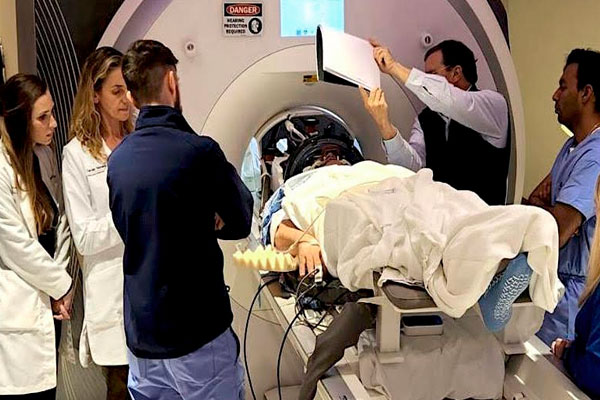

May 6, 2024 – Nestled inside a giant MRI machine, the woman wears a helmet with special probes. Peering through high-tech goggles, she sees images designed to trigger the awful, familiar cravings that have wrecked her life.
Heroin residue on tin foil. Lines of powder cocaine.
At the same time, scientists buzz around a small observation room, scrutinizing brain scans on computer monitors, calibrating measurements, tweaking data points. Beams of ultrasound waves fireinto a tiny sector of the woman’s brain by the hundreds — an experimental treatment that researchers hope will essentially reset her mind and ease her cravings for drugs.
The April clinical trial session at West Virginia University’s Rockefeller Neuroscience Institute opens a window into a growing school of research that repurposes a tried-and-true scientific tool, ultrasound, in a more focused fashion. The use of the high-frequency sound waves is being adapted to treat Alzheimer’s disease, tumors and psychiatric disorders. Now, researchers are studying whether ultrasound can be deployed against an especially implacable foe: addiction to opioids and other substances.
VIDEO – SO TASTY – Feb. 14, 2025 - Le Pigeon’s award-winning chef teams up…
WATCH & PUKE – BOTTLED HYPOCRITE – Feb. 7, 2025 - Despite a lifetime of…
VIDEO – DON’T BLAME THE EAGLES – Feb. 15, 2025 - That’s almost five times…
WORDS SAVES LIVES – Feb. 7, 2025 - Barbara Kingsolver has put royalties from her…
VIDEO – MUSICAL INTERLUDE – 4,525,720 views since Nov 18, 2017 - Godspell is a…
ROMANTIC PUZZLES – Feb. 8, 2025 - I was on my first date in 14…